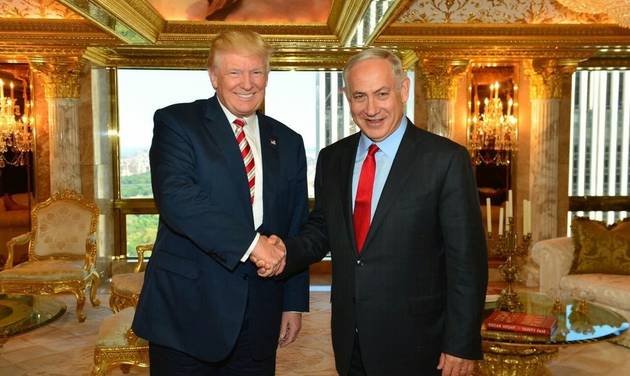-
Tips for becoming a good boxer - November 6, 2020
-
7 expert tips for making your hens night a memorable one - November 6, 2020
-
5 reasons to host your Christmas party on a cruise boat - November 6, 2020
-
What to do when you’re charged with a crime - November 6, 2020
-
Should you get one or multiple dogs? Here’s all you need to know - November 3, 2020
-
A Guide: How to Build Your Very Own Magic Mirror - February 14, 2019
-
Our Top Inspirational Baseball Stars - November 24, 2018
-
Five Tech Tools That Will Help You Turn Your Blog into a Business - November 24, 2018
-
How to Indulge on Vacation without Expanding Your Waist - November 9, 2018
-
5 Strategies for Businesses to Appeal to Today’s Increasingly Mobile-Crazed Customers - November 9, 2018
Obama Stands Up to Israel: “Cannot Permanently Occupy and Settle Palestinian Land”
When Israeli Prime Minister Binyamin Netanyahu sits down today with President Obama for the 17th (and last) time, he is likely to hear a rebuke of Israel’s continued building in the West Bank. The name “Iran”, once the source of what some considered a nadir in US-Israeli ties, was not mentioned once.
Advertisement
Most US-based analysts say they do not expect President Obama to waste his political capital on trying to restart Israeli-Palestinian negotiations, which have been frozen for years now.
The White House has conceded that talks aren’t likely to resume while Obama remains in office, but have remained open to the possibility the President could take steps in the next months to ramp up pressure on both sides to work toward a two-state solution.
Obama made reference to a $38 billion military assistance agreement signed by the two allies on September 14.
“It is a very risky and hard time in the Middle East and we want to make sure that Israel has the full capabilities it needs in order to keep the Israeli people safe”, Mr Obama said.
But despite the smiles, behind closed doors Obama was expected to push Netanyahu on returning to the negotiating table with the Palestinians and ending settlement activity in the West Bank.
Obama said Netanyahu has “always been candid” with the U.S., likely referencing the long history of spats between Jerusalem and Washington over the past six years, including over the Iran nuclear deal and Israeli Palestinian peace. “Time is running out and this is one of the last opportunities that a statement by President Obama could be significant. I’m sure President Obama will do so tomorrow as well”.
“I don’t think a USA president tends to take dramatic initiatives on foreign relations in his last few months”, Tamir Sheafer, a professor of political science at Hebrew University in Jerusalem told The Media Line.
“Surely Israelis and Palestinians will be better off if Palestinians reject incitement and recognize the legitimacy of Israel…(and if) Israel recognizes that it can not permanently occupy and settle Palestinian land”, the President said.
Ties between the two leaders never fully recovered after Mr Netanyahu showed up on Capitol Hill to lobby Congress against Mr Obama’s nuclear deal with Iran.
Mr Netanyahu challenged that notion, said one official, adding that the two leaders had not “papered over” their differences.
Before Wednesday’s Manhattan meeting, Deputy National Security Adviser Ben Rhodes told reporters that he was certain that Obama would raise the issue of “continued settlement activity, the potential viability of a Palestinian state in the face of that settlement activity”.
US President Barack Obama, right, shakes hands with Israeli Prime Minister Benjamin Netanyahu during a bilateral meeting in New York, September 21, 2016.
In his United Nations speech on Tuesday, the Israeli-Palestinian conflict was barely mentioned.
Advertisement
Both Mr. Abbas and Mr. Netanyahu were scheduled to address the General Assembly on Thursday.





























